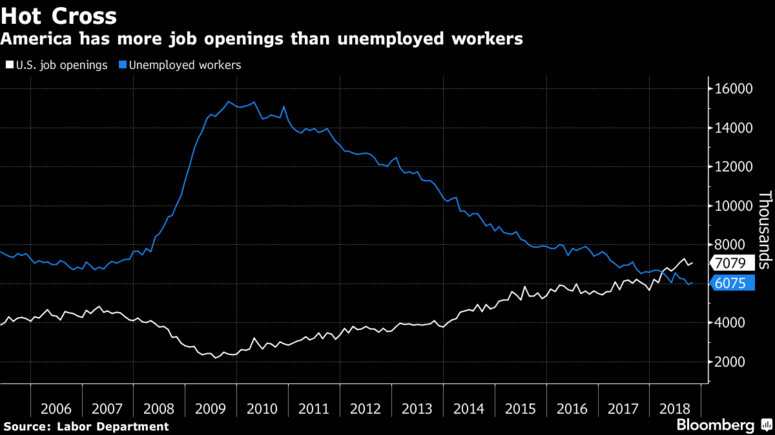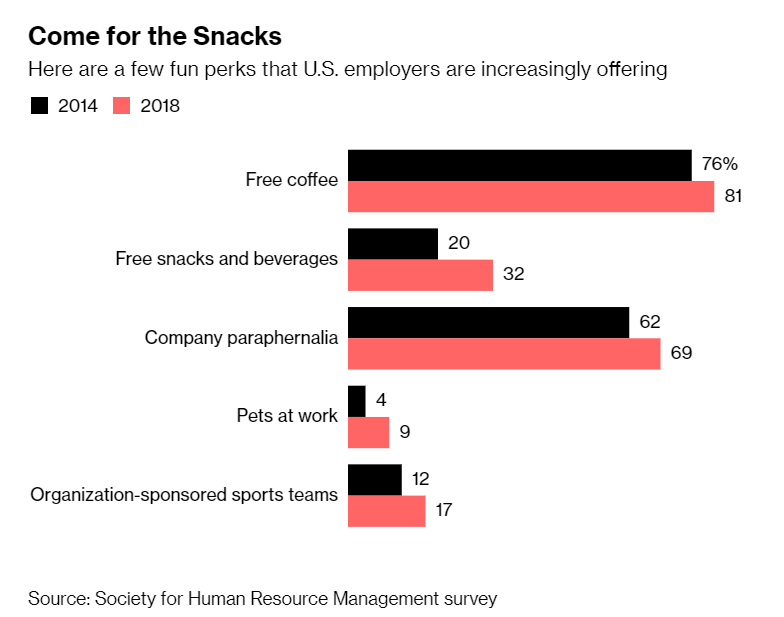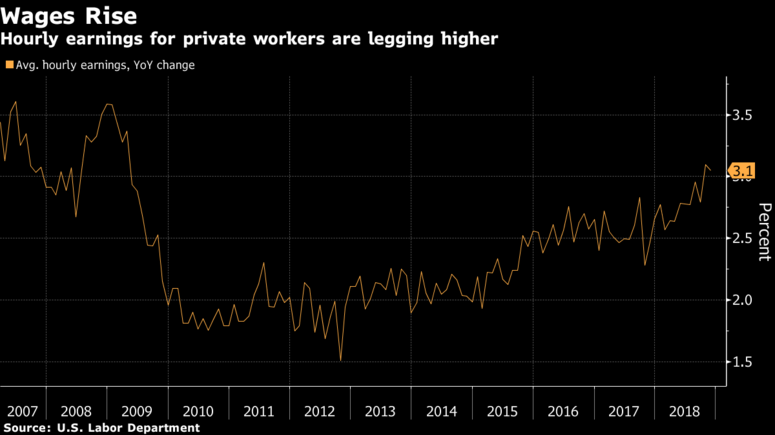 Employee power is also manifesting in pickiness. More than a third of workers say they wouldn't take the perfect position if they didn't like the office culture. (Photo: Shutterstock)
Employee power is also manifesting in pickiness. More than a third of workers say they wouldn't take the perfect position if they didn't like the office culture. (Photo: Shutterstock)
Staffing firm Robert Half was recently asked to fill a financial analyst job for a reason that would've been unimaginable back in 2008. Its Los Angeles-based client had already made a hire, but the would-be employee failed to turn up on day one.
“Just no-showed and ghosted that employer, never to be heard from again,” said Paul McDonald, senior executive director at the Menlo Park, California-based placement company. “Did they get another job? Don't know. Did they decide not to take a job at that company? Unknown.”

Ten years after the worst downturn since the Great Depression, unemployment is at 3.7 percent, job openings are plentiful, and the pendulum of workplace power is swinging toward employees. That's expressing itself in uniquely 21st-century ways, from enabling labor market “ghosting” to turning the tables on social-media stalking. Below, we run down a few hot labor-market signs for a modern era.
Related: Are you prepared for job candidates to ask, “Why should I work here?”
Ghosting
Among millennials, ghosting means cutting lines of communication abruptly, and the term is often used in the context of Tinder dates. You go out a few times, things seem great, and then… silence.
Employers have “ghosted” undesired applicants for years. But in a display of economic karma, reports abound that applicants are now cutting communication with wannabe employers once they get other offers or lose interest. They can pull it off because jobs are so plentiful.
Workers are even going so far as to quit by going off the grid, and the trend is big enough to draw notice: the Federal Reserve Beige Book gave economic analysts a vocabulary lesson this month.
“A number of contacts said that they had been 'ghosted,' a situation in which a worker stops coming to work without notice and then is impossible to contact,” according to takeaways from the Chicago District.
Social media tables turn
Employee power is also manifesting in pickiness. More than a third of workers say they wouldn't take the perfect position if they didn't like the office culture, according to a recent Robert Half survey.
“Before they even look at a company to interview with, they say: what's the tone within the department?” McDonald said. “What's being said in the social media space? Are they being socially responsible?”
The fact that candidates are stalking their potential employers on social media is a real reversal from years past, when hiring managers scanned the web and job applicants' online histories often disqualified them. That is no longer happening as much, according to Tom Gimbel, founder of recruiting firm LaSalle Network in Chicago.
“Desperate times call for desperate measures,” he said. “At 3.7 percent, you say, 'What we don't know won't hurt us.'”
Skipping the pot test
On a similar note, unemployment this low means workers can more confidently get high. Marijuana use has been legalized and decriminalized in many states just as the labor market has tightened, which has prompted some employers to skip drug testing, as Bloomberg reported earlier this year.
U.S. Labor Secretary Alexander Acosta told lawmakers in April that it's important to “take a step back” and make sure drug-testing policies are well-aligned with workforce needs. Even the Society for Human Resource Management has posted articles like one in May entitled: “Are Employer Drug-Testing Programs Obsolete?”
Snacks, vacation, profit-sharing
Employees who know they have some leverage are also using it to pry better benefit packages out of their bosses.
In the New York Fed region, a few Fed business contacts noted “increased health benefits and profit sharing,” in the Dallas area bonuses are headed higher, and in the San Francisco district companies are giving out more paid vacation, according to the latest Beige Book. In the Minneapolis region, “some firms reported paying a greater share of workers' health insurance premium costs to attract and retain employees.”

About a third of employers had increased their benefit offerings between 2017 and 2018, the Society for Human Resource Management found. In addition to more serious offerings, perks on the rise include pets at work, free snacks, company swag and casual dress.
Wages
Workers may want fulfillment, a good company culture and fantastic benefits, but that hasn't really replaced their desire for cash money. And in today's hot job market, pay packages are finally getting bigger.

Wage growth has yet to reach its high from the previous expansion, however, raising questions: Are other benefits replacing pay? Is a skills gap weighing down the average? Or are there simply more workers on the sidelines, waiting to sate employer demand and keeping pay in check?
They're key questions as the Fed heads into 2019 with the lowest unemployment since 1969 and a prime-age labor-force participation rate that's been creeping steadily higher. It's a changing economy, and spectral employees aren't the biggest mystery.
Read more:
© 2025 ALM Global, LLC, All Rights Reserved. Request academic re-use from www.copyright.com. All other uses, submit a request to [email protected]. For more information visit Asset & Logo Licensing.








